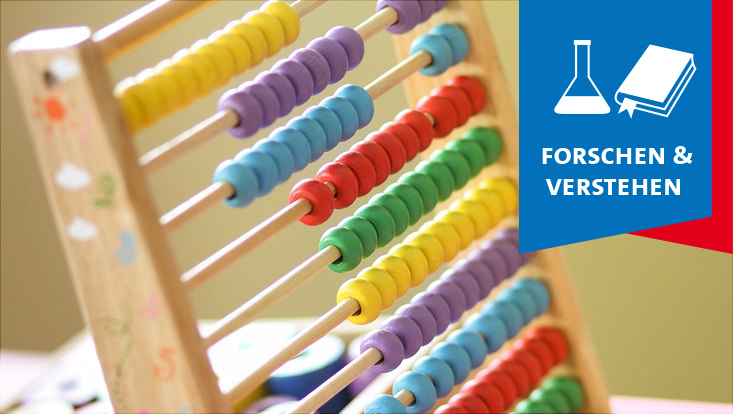Teachers’ expectations and their consequences“It’s not easy to dismantle stereotypes with knowledge alone.”Doing the Research series
27 October 2022, by Anna Priebe

Photo: pixabay/Pexels
Gender stereotypes can strongly influence teachers’ expectations. In the TEG-Know project, researchers from the Faculty of Education, in cooperation with the Leibniz Institute for Science and Mathematics Education at the University of Kiel and Freie Universität Berlin, are looking into whether professional knowledge has a positive impact. Prof. Dr. Jan Retelsdorf talks about the challenges in research on stereotypes in schools in our Doing the Research series.
Why is it so important to consider stereotypes in connection with classroom instruction?
We all stereotype. Thus, in my opinion, everyone who needs to judge others in their professional life needs to learn to question their professional actions. Teachers also have their stereotypes that they can’t just shake off. But these should not be relevant in their professional activities. Teachers need to ask themselves: How do I judge? Is it fair to the individual?
It is often said that boys are good at sports and girls are bad at math. How do you research whether teachers believe such gender stereotypes?
Basically, there are 2 possibilities for identifying stereotyping, although it must also be said that neither is perfect. With implicit methods, we often measure reaction times: for example, the test subjects need to assign terms like “adding and subtracting,” “mathematics,” or “reading” to other terms such as “girls” or “boys” and we measure how quickly that happens. Basically, we are just measuring associations without knowing exactly whether they are stereotypical.
With explicit methods, we provide statements, such as yours, to the test subjects and they have to respond. The danger here is mainly that subjects will give socially acceptable answers, but sometimes even we are surprised at which stereotypes are agreed with.
What are the consequences of stereotypes for school students?
We assume that stereotypes affect teachers’ expectations, among other things, of individual children. Previous studies have shown that positive expectations of a child generally positively impact performance while negative expectations, accordingly, have the opposite effect.
For example: Because Lisa is a girl, the teacher may presume that she can’t count as well and, accordingly, develops lower academic expectations for her. These expectations can, in turn affect behavior, consciously or subconsciously. This can mean, for example, that Lisa is called on less or she gets easier math problems. This reduces Lisa’s motivation because she notices that the teacher doesn’t trust her, and that can lead to worse performance.
In her TEG-Know research project, the main concern is what impact knowledge of the profession can have. What does this mean?
Professional knowledge in this project means, above all, expertise in teaching and psychology. No one is free of stereotypical thinking. But we can assume that this kind of knowledge means that teachers are aware of the possible consequences of stereotyping and try to correct their expectations or to not allow them to impact their behavior.
How did you conduct your research?
We worked together with 50 second-grade classrooms in Hamburg and northern Germany. At the beginning of the school year, we explicitly asked math teachers how they assess boys and girls with regard to their math skills. Initially, we were more interested in potential, not concrete achievements. We also checked the teachers’ knowledge of their own professions using a standardized test.
At the beginning, middle, and end of the school year, we also tested the pupils’ achievements and asked them about their own motivation in math. We correlated these data with the teacher data and looked at how gender-specific expectations on the part of the teachers, in connection with their knowledge of the profession, actually impact their pupils’ achievements.
We are dealing with relatively significant automatic behaviors.
Are there initial findings?
So far, we haven’t been able to find a connection to professional knowledge. That means that greater knowledge of the profession does not reduce the connection between stereotyping and expectations and student achievement.
Is that surprising?
It was to some extent to be expected, because we are dealing with relatively significant automatic behaviors and ways of processing information. We know from the basic research in social psychology that it is not easy to dismantle stereotypes. Thus, we pursued the study with an open mind to see if professional knowledge might, on the contrary, make an impact. This was a first attempt at taking a look in this direction. Basically, the test we used and also our study generally focus on pedagogical psychology, because there are no tried-and-true tests in the areas of judgment distortion and evaluation. Here, we can made any necessary adjustments and look at how specific knowledge impacts these areas.
Project
The Teacher Expectations, Gender Stereotypes, and Professional Knowledge (TEG-Know) project was conducted by the subject group Pedagogical Psychology in the Faculty of Education and funded by the German Research Foundation. It involves cooperation between researchers from Universität Hamburg, Freie Universität Berlin, and the Leibniz Institute for Science and Mathematics Education at the University of Kiel.
Doing the Research
There are approximately 6200 academics conducting research at 8 faculties at Universität Hamburg. Many students also often apply their newly acquired knowledge to research practice while still completing their studies. The Doing the Research series outlines the broad and diverse range of the research landscape, and provides a more detailed introduction of individual projects. Feel free to send any questions and suggestions to the Newsroom editorial office(newsroom"AT"uni-hamburg.de).


